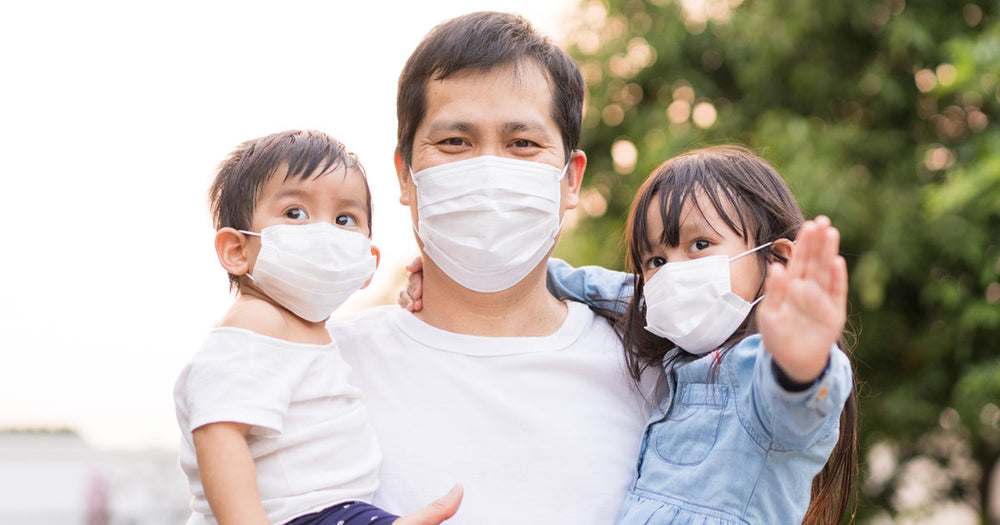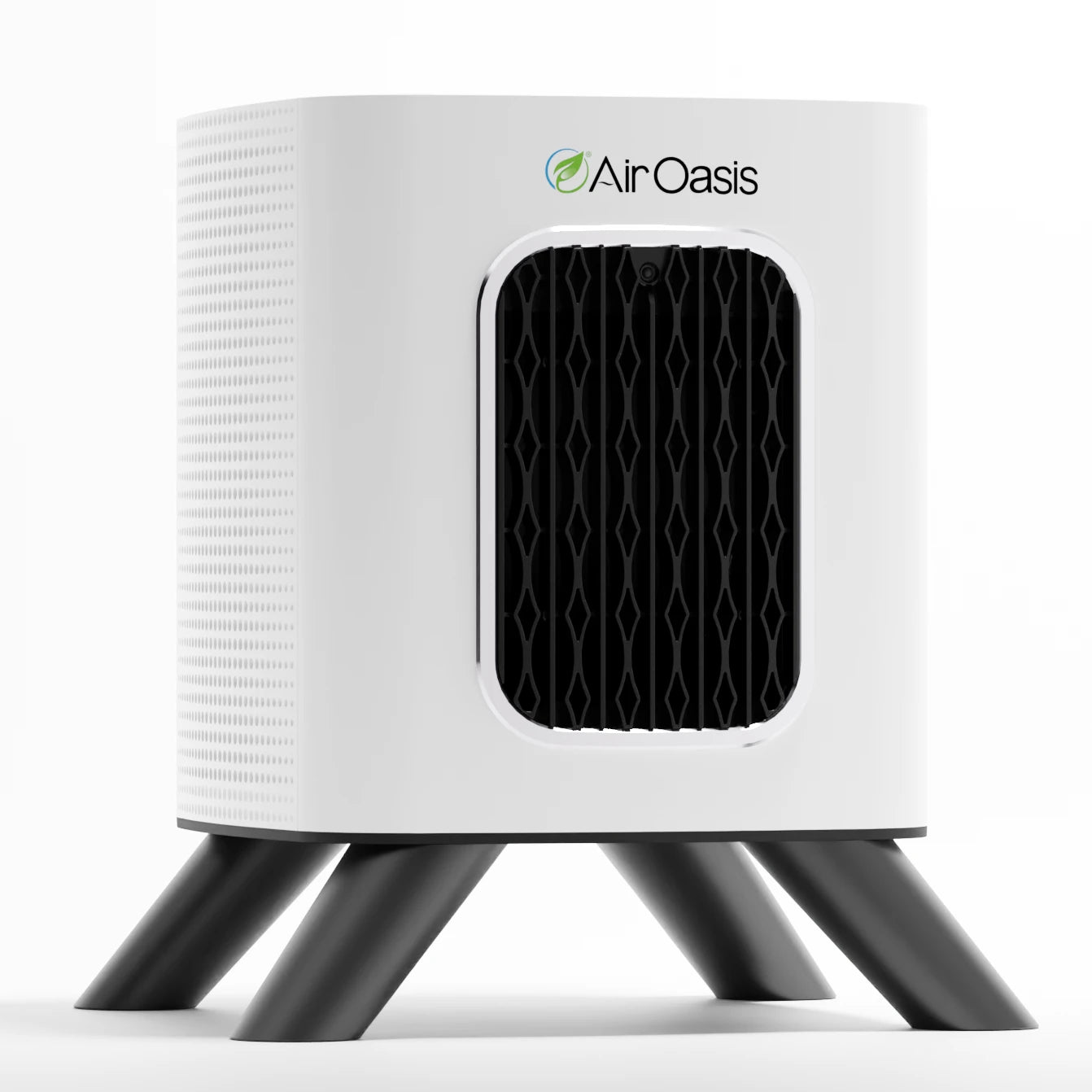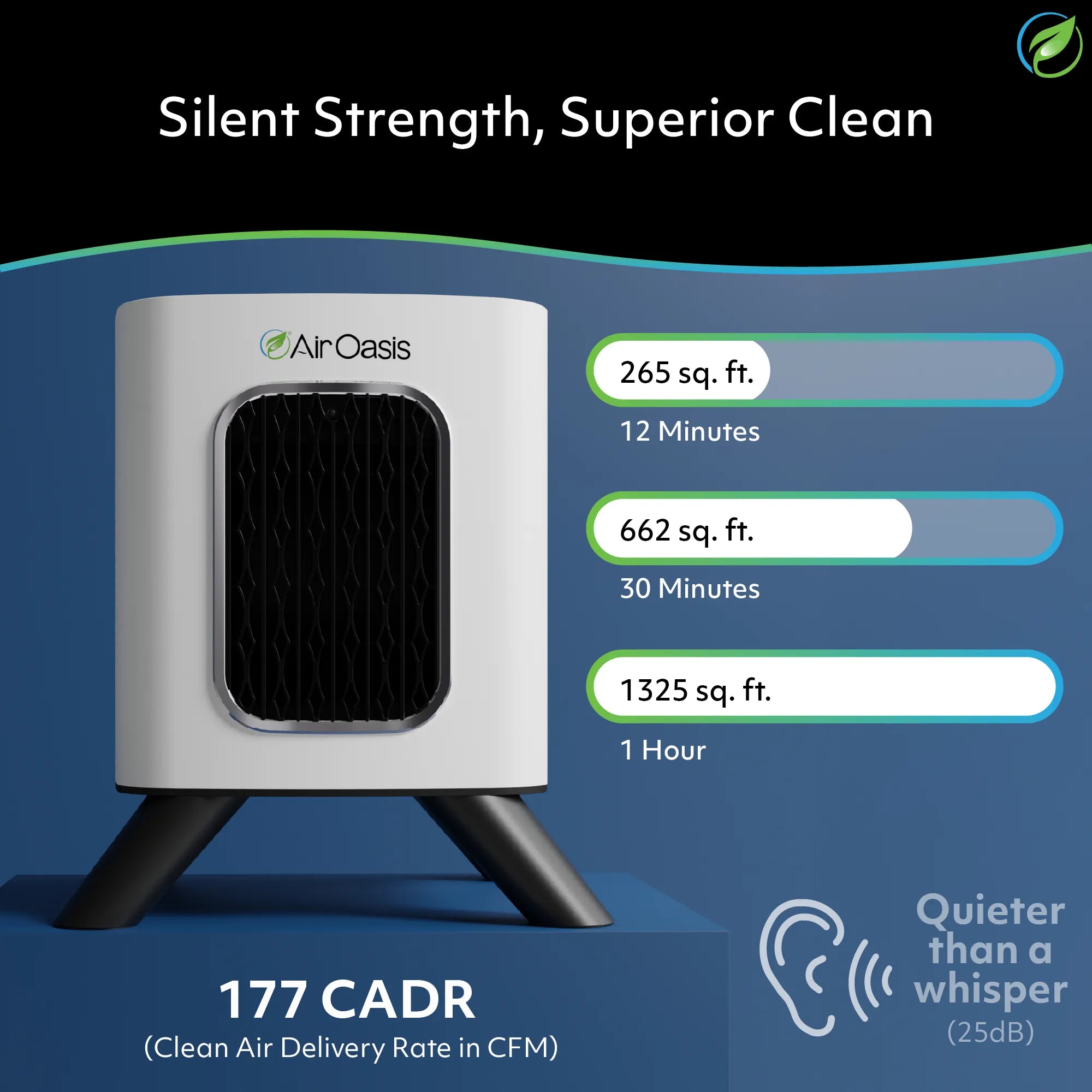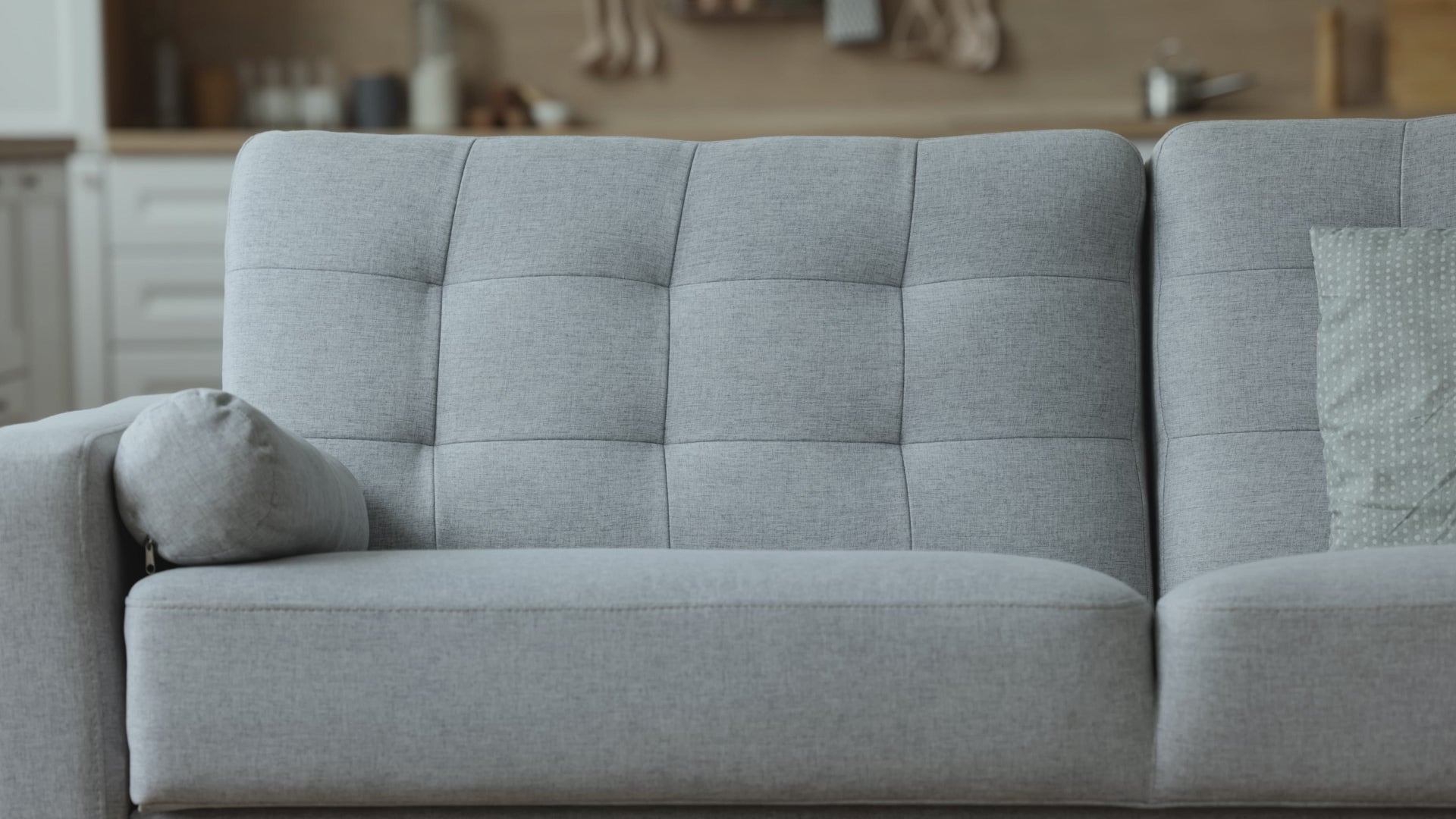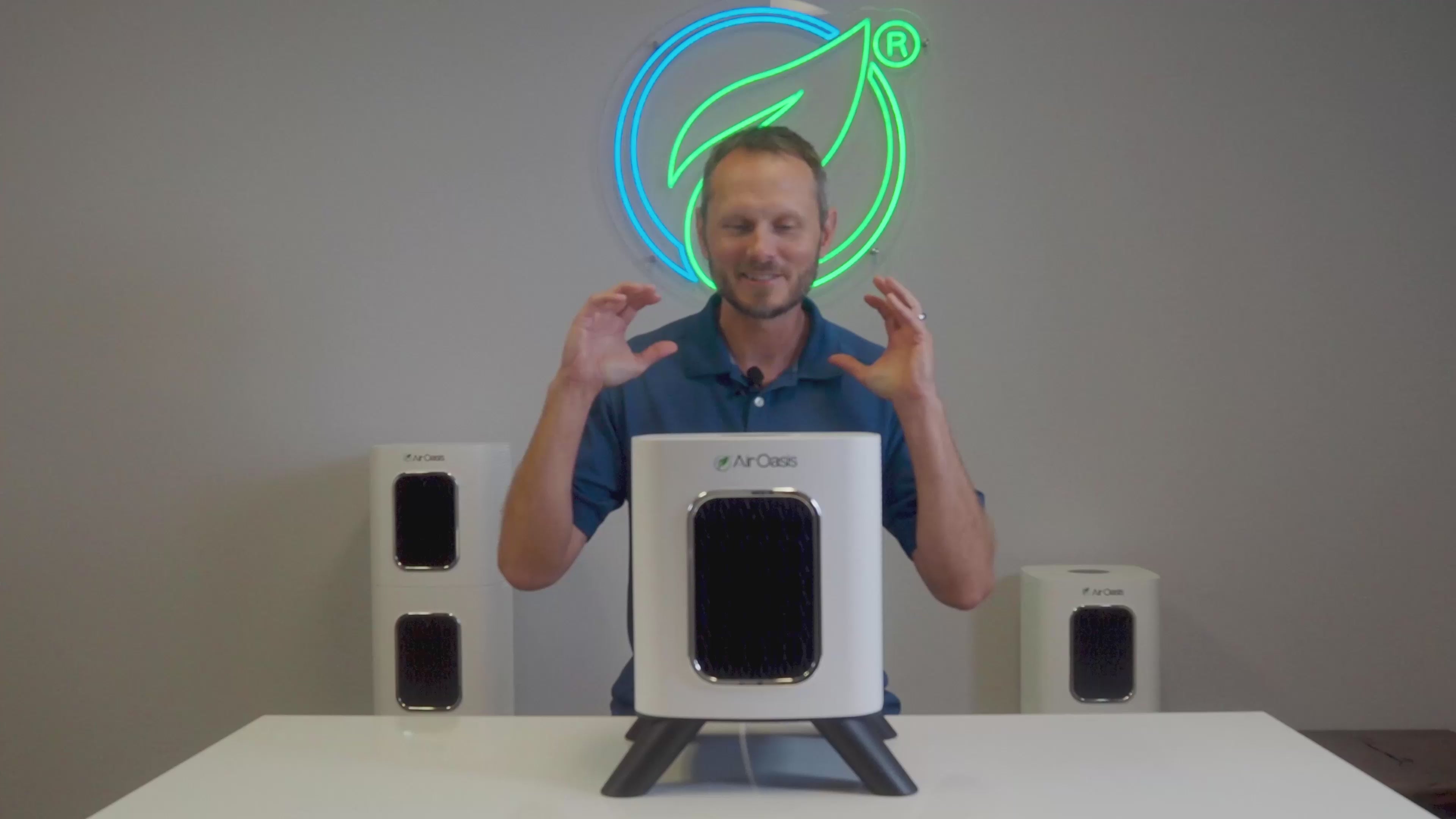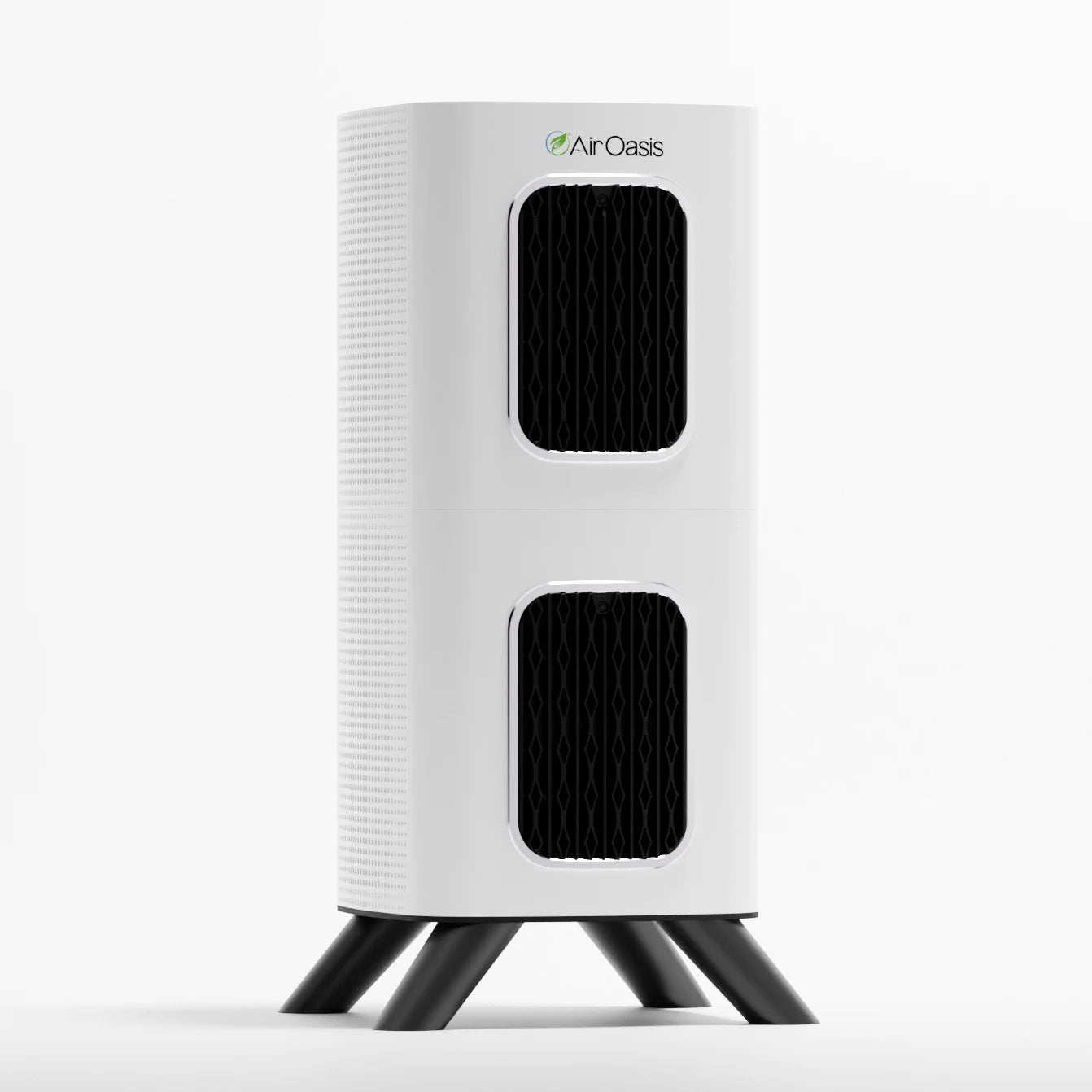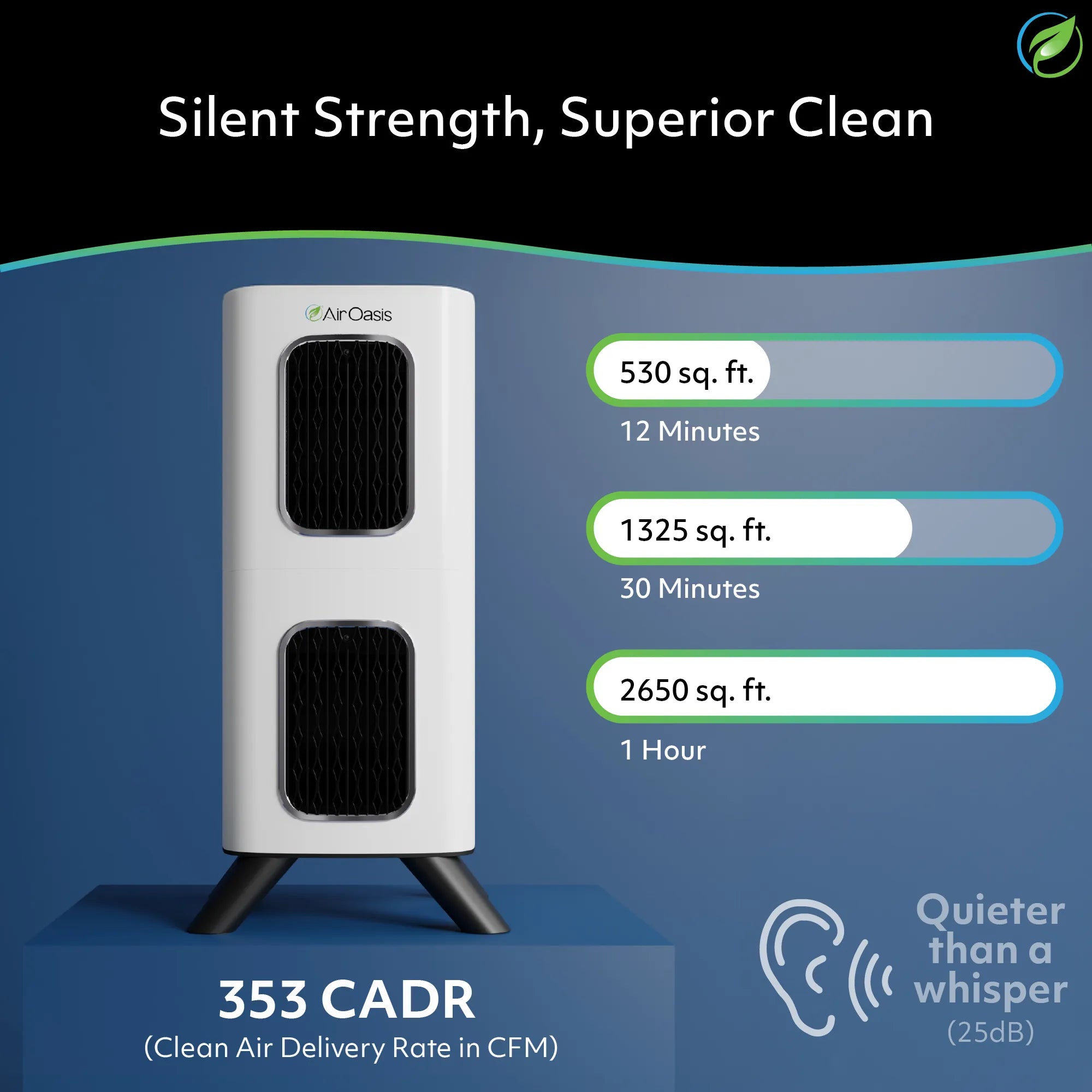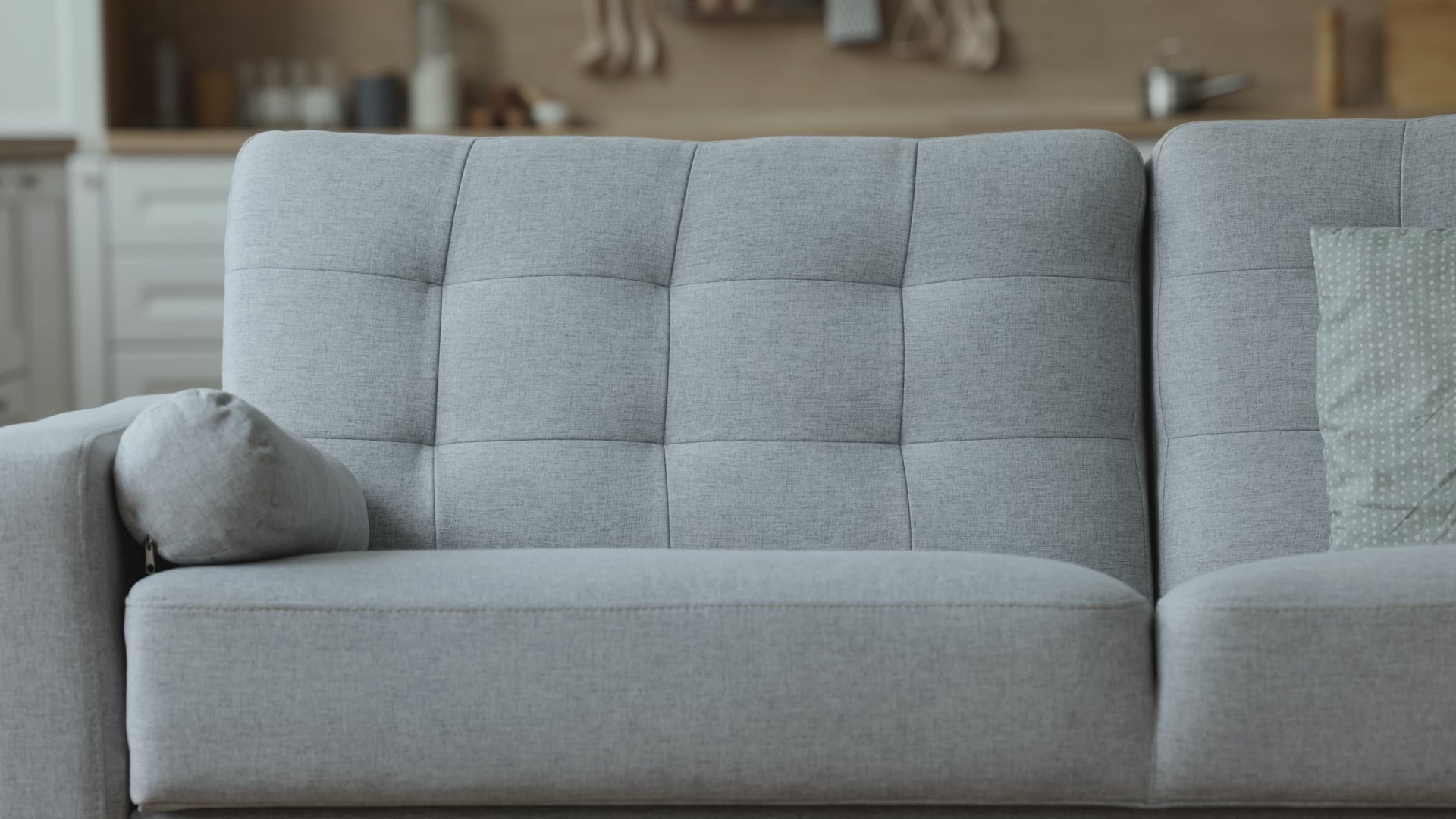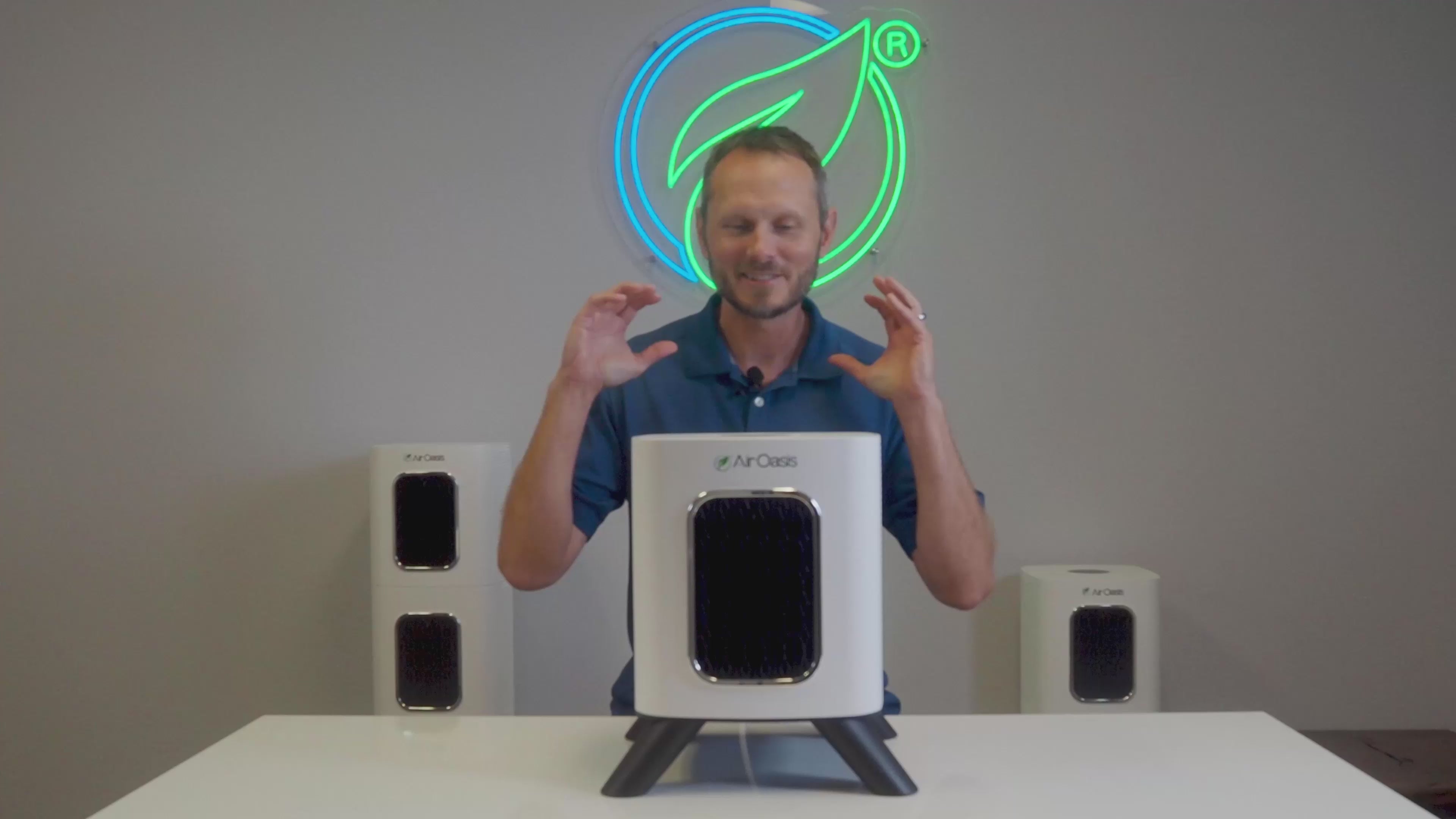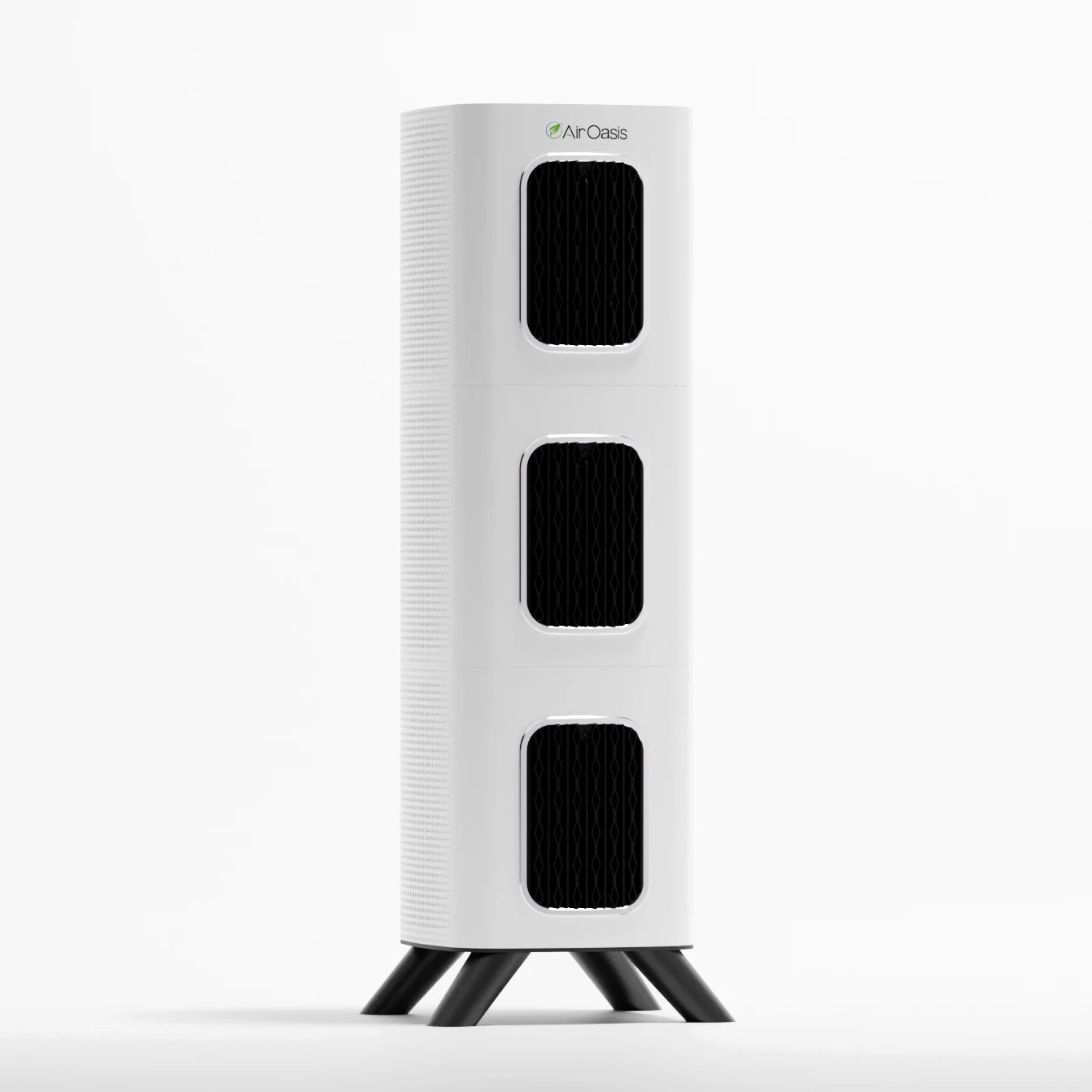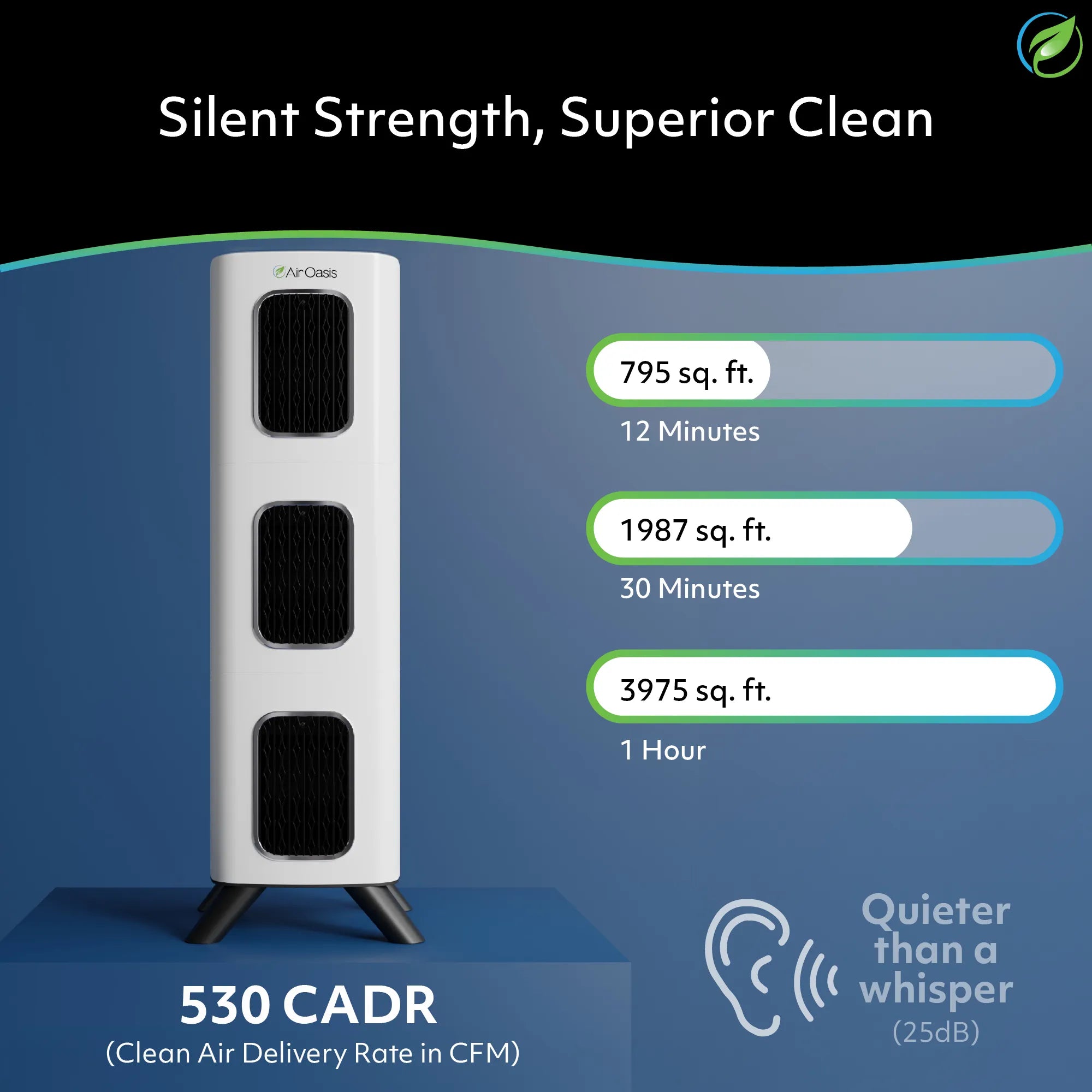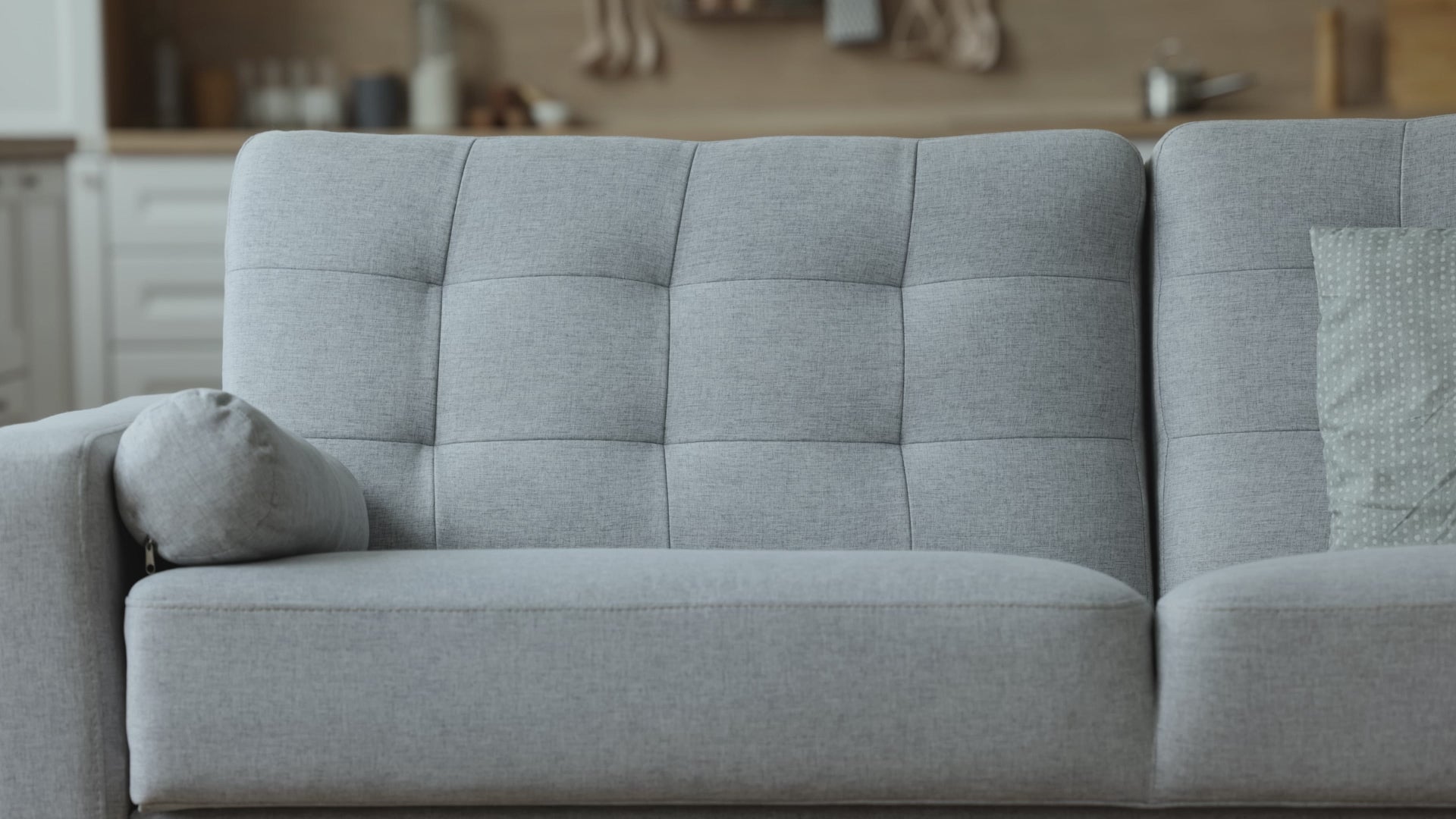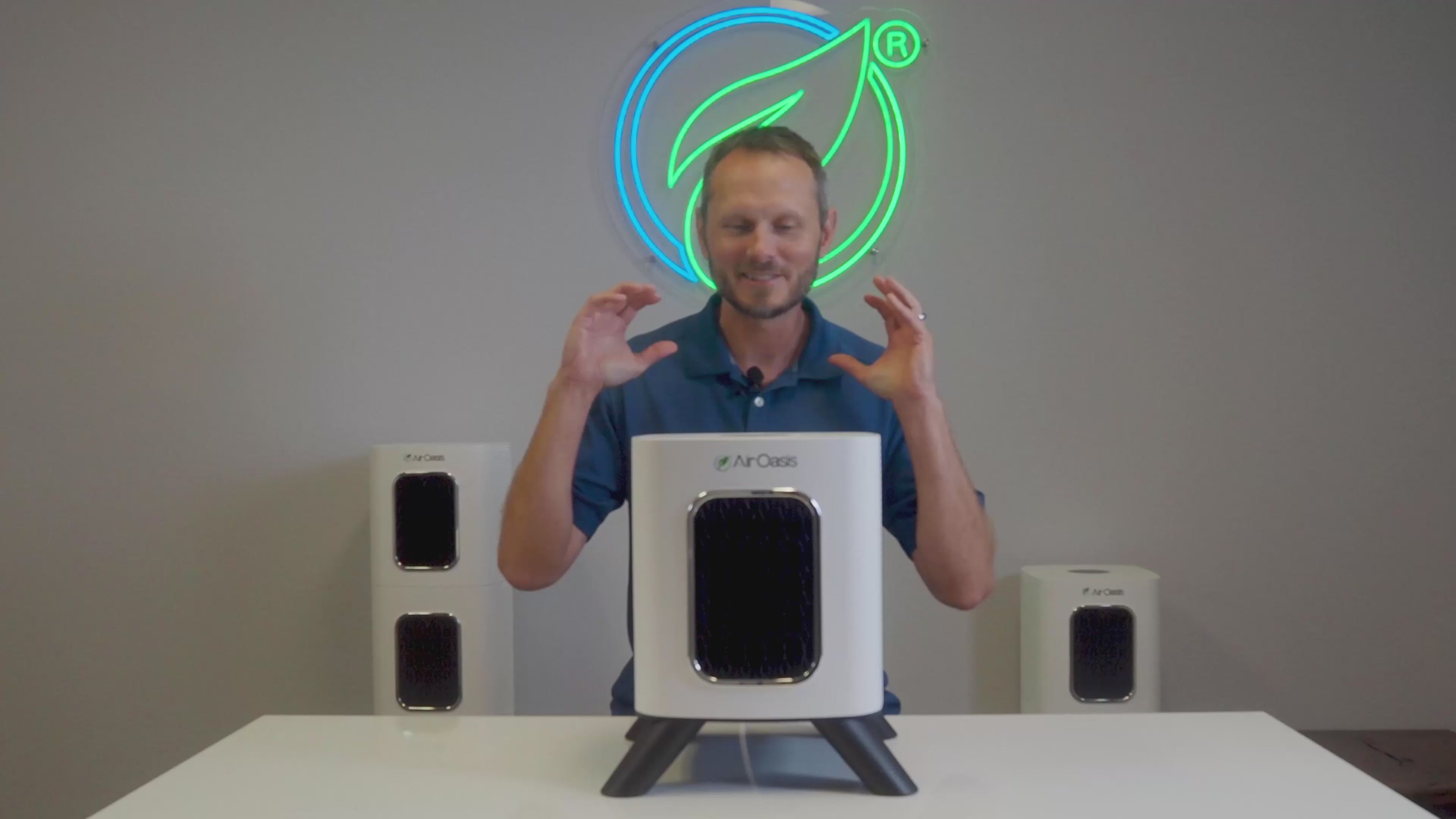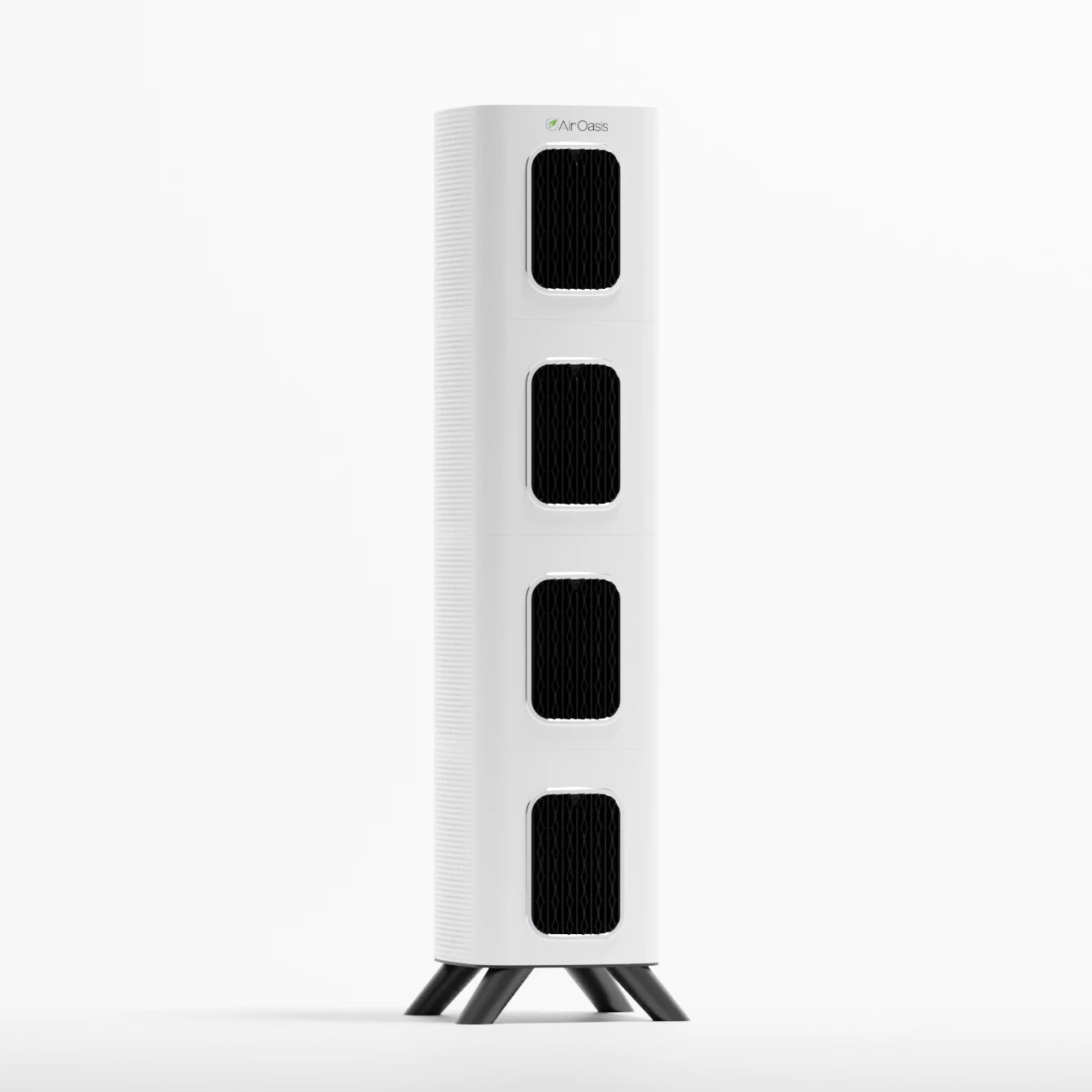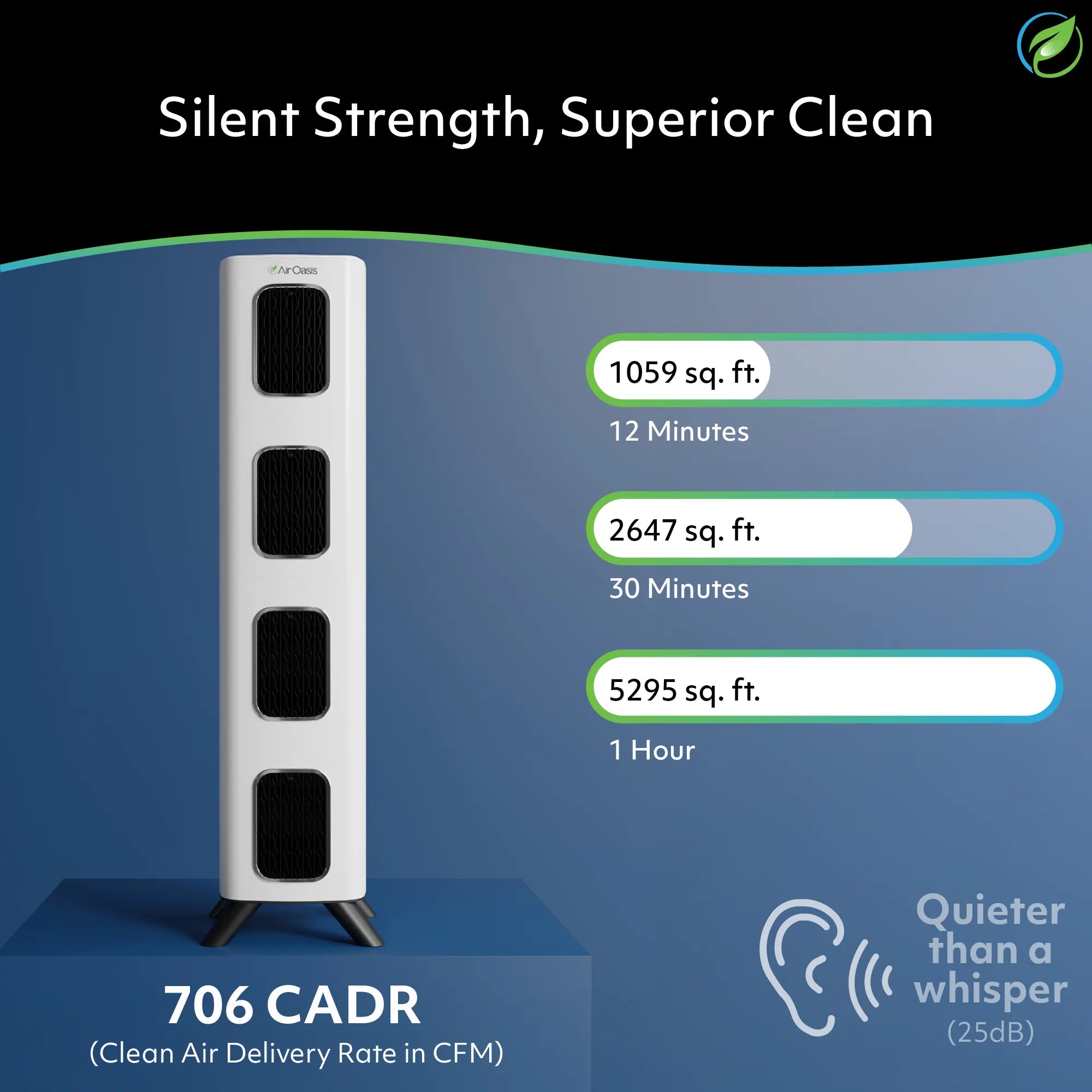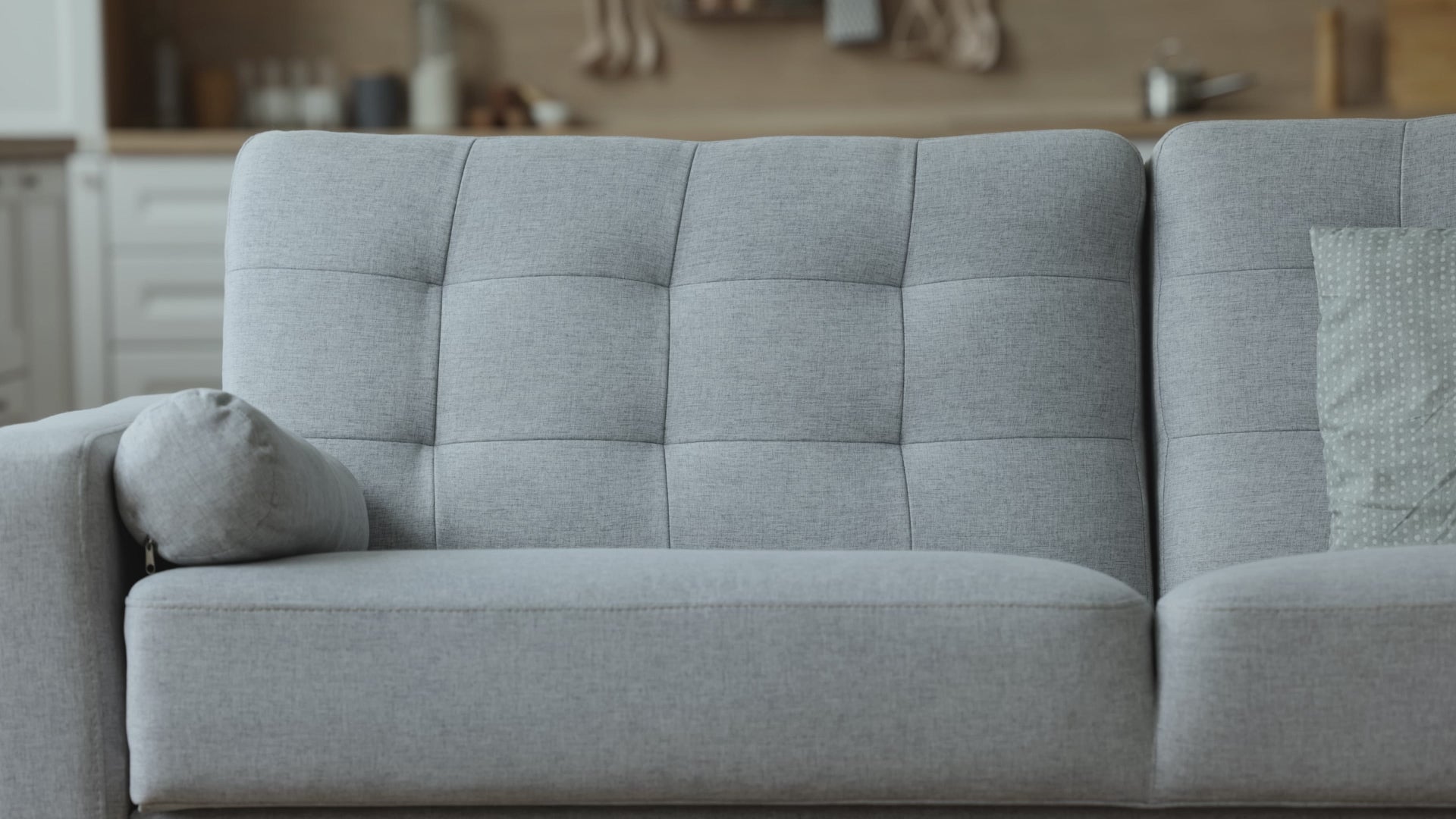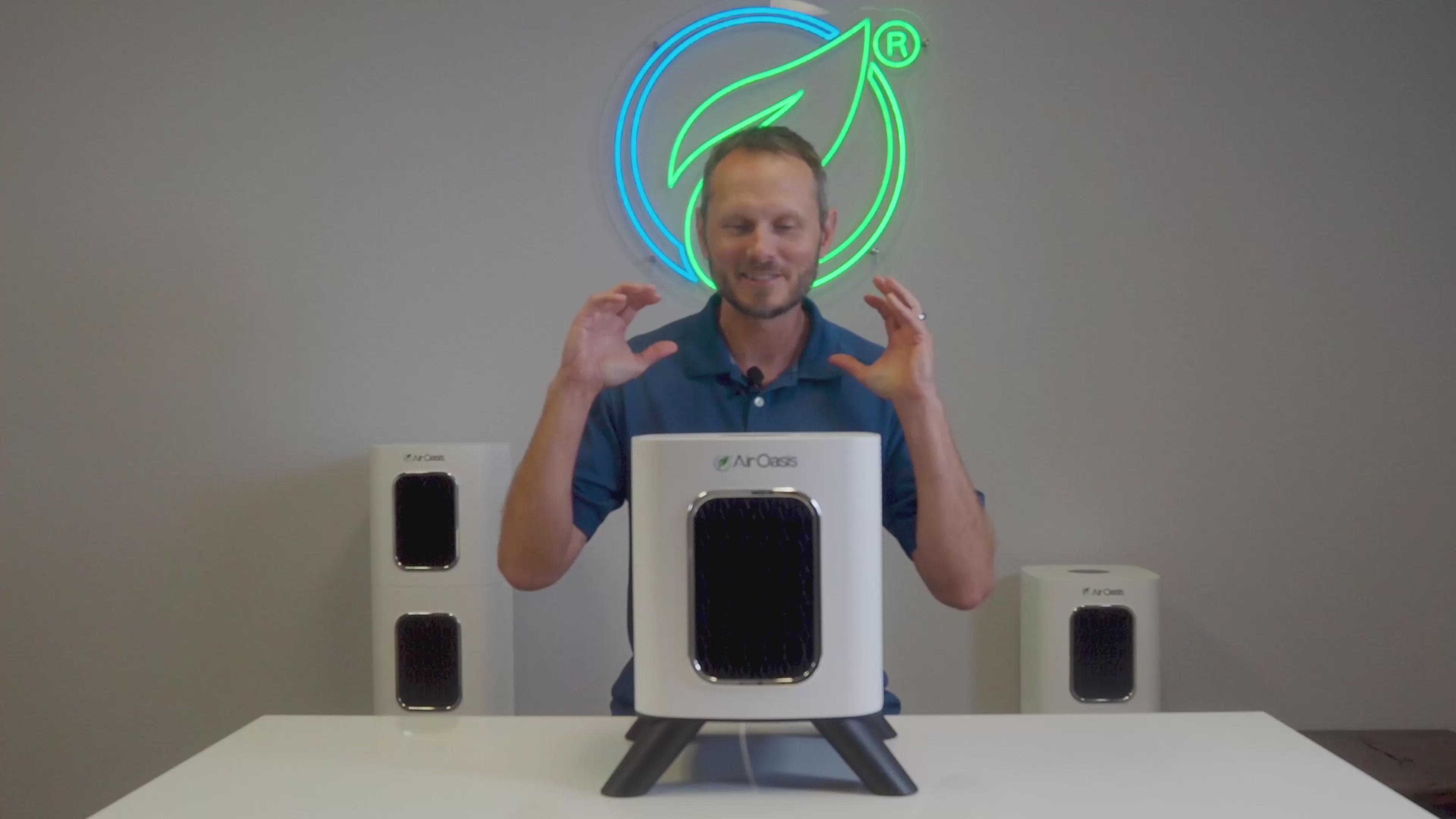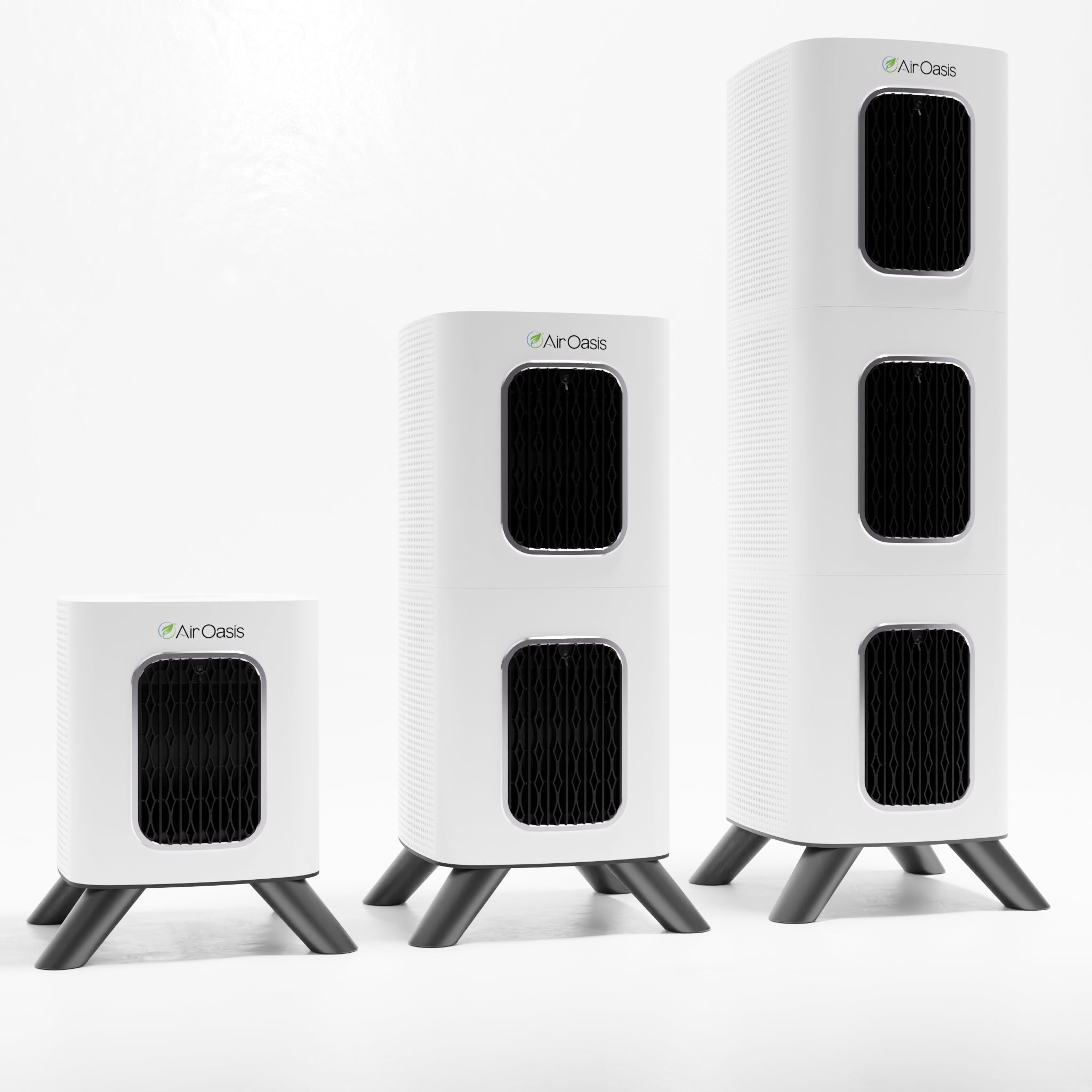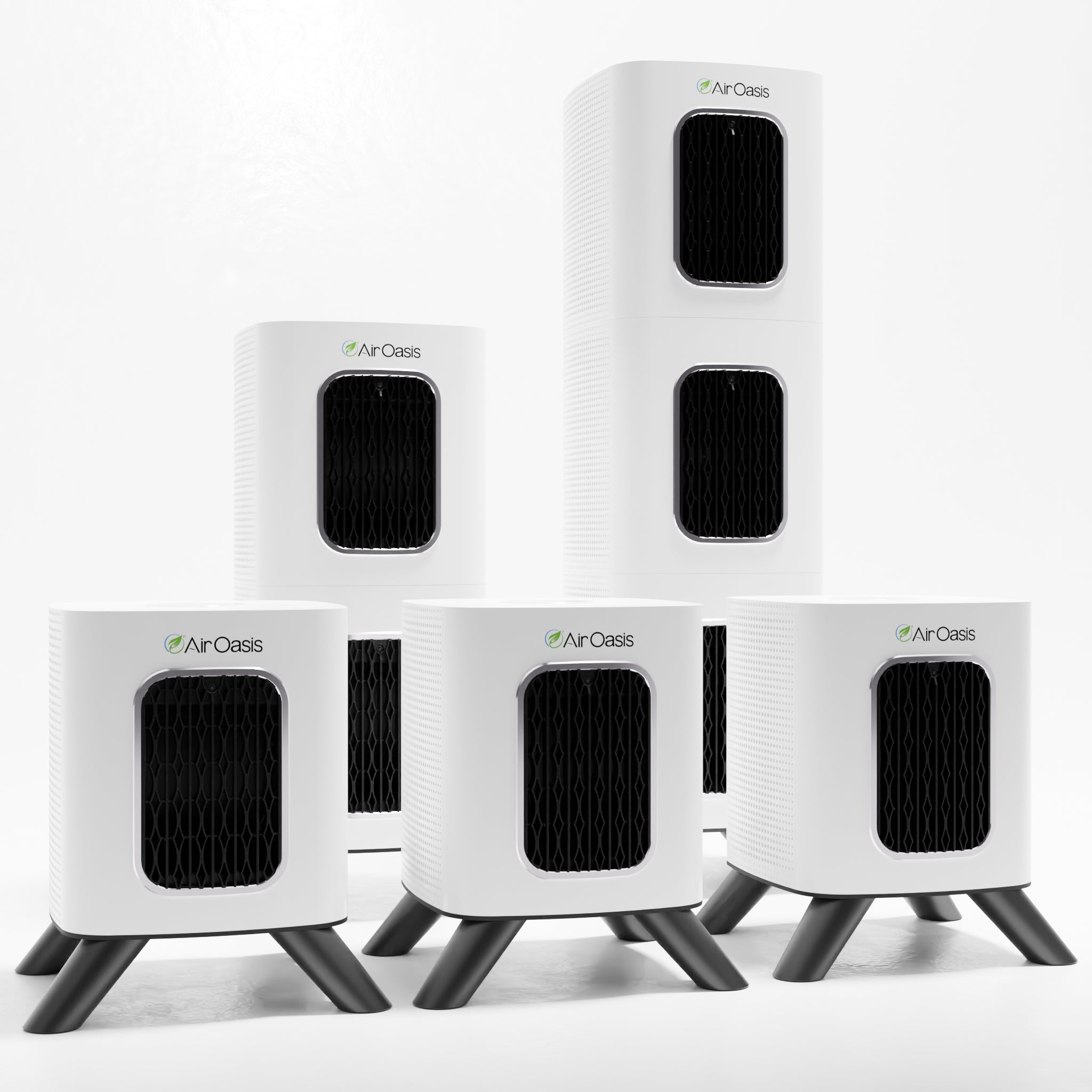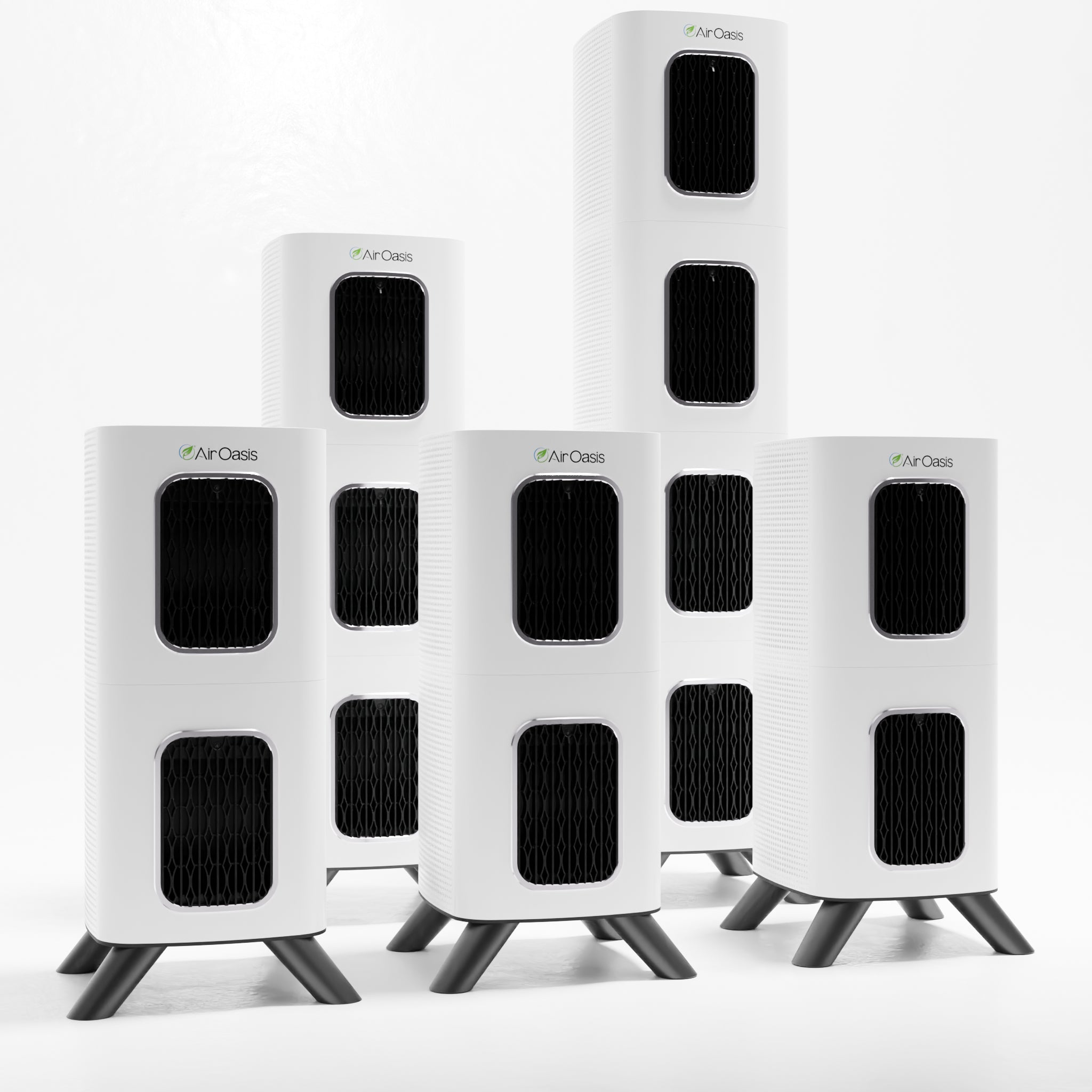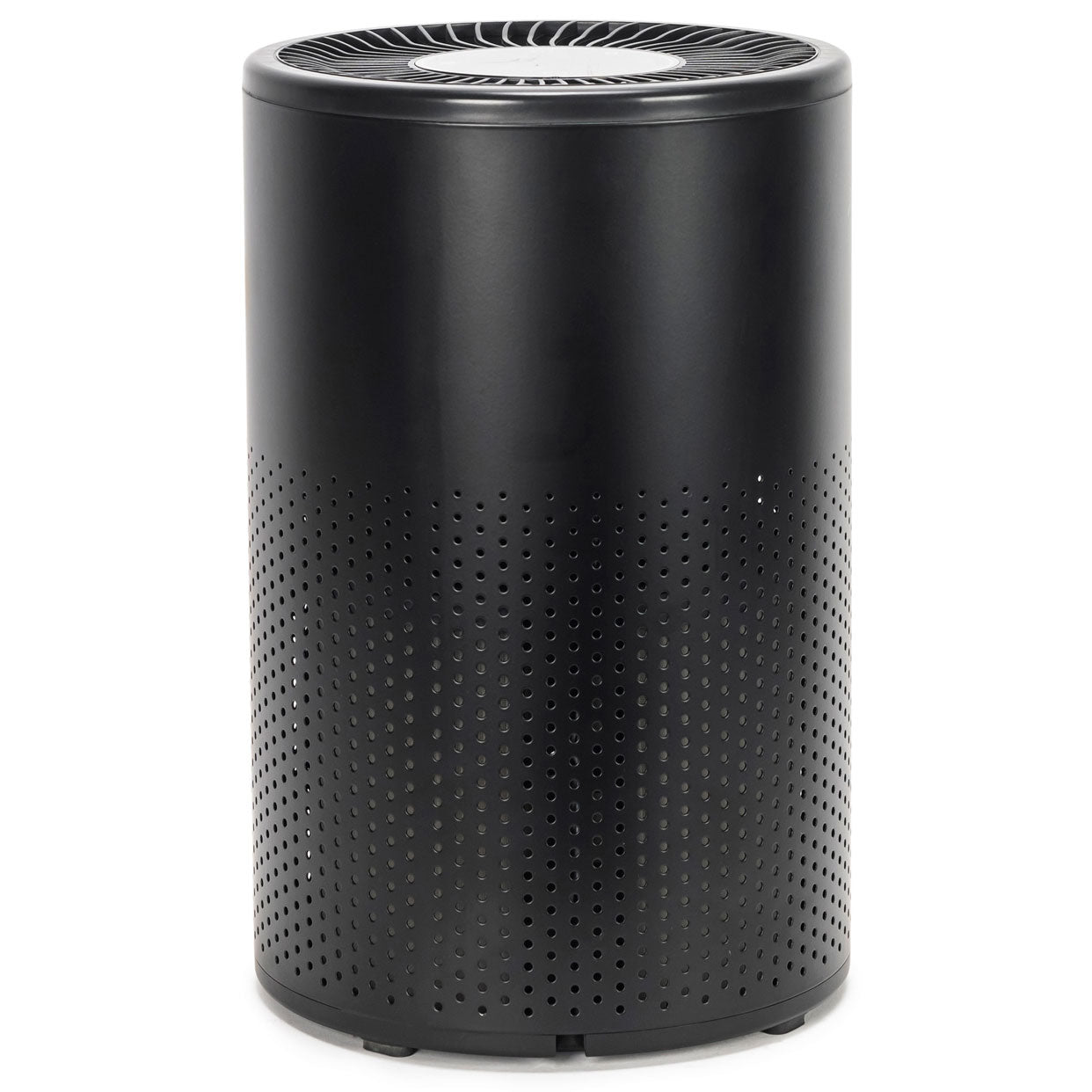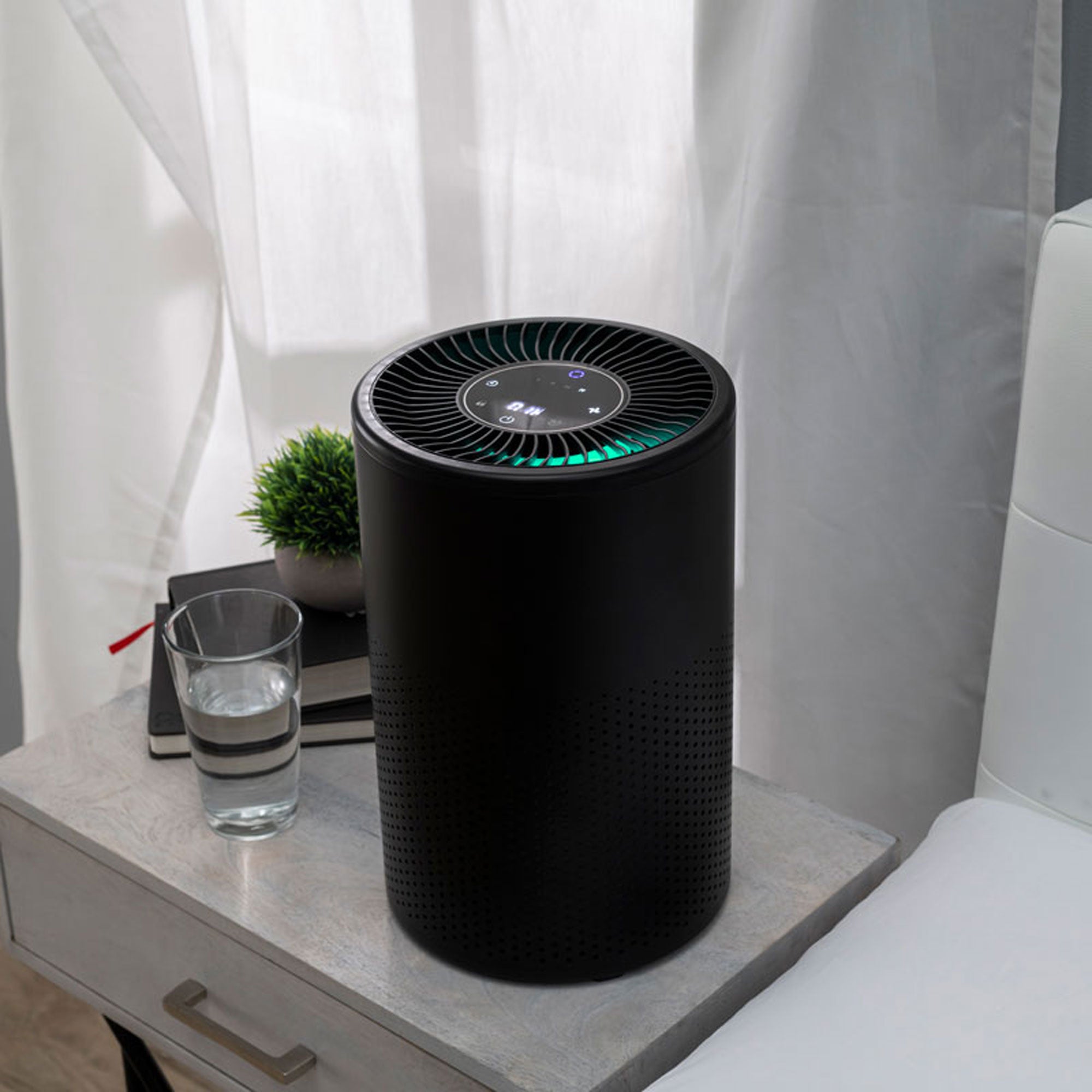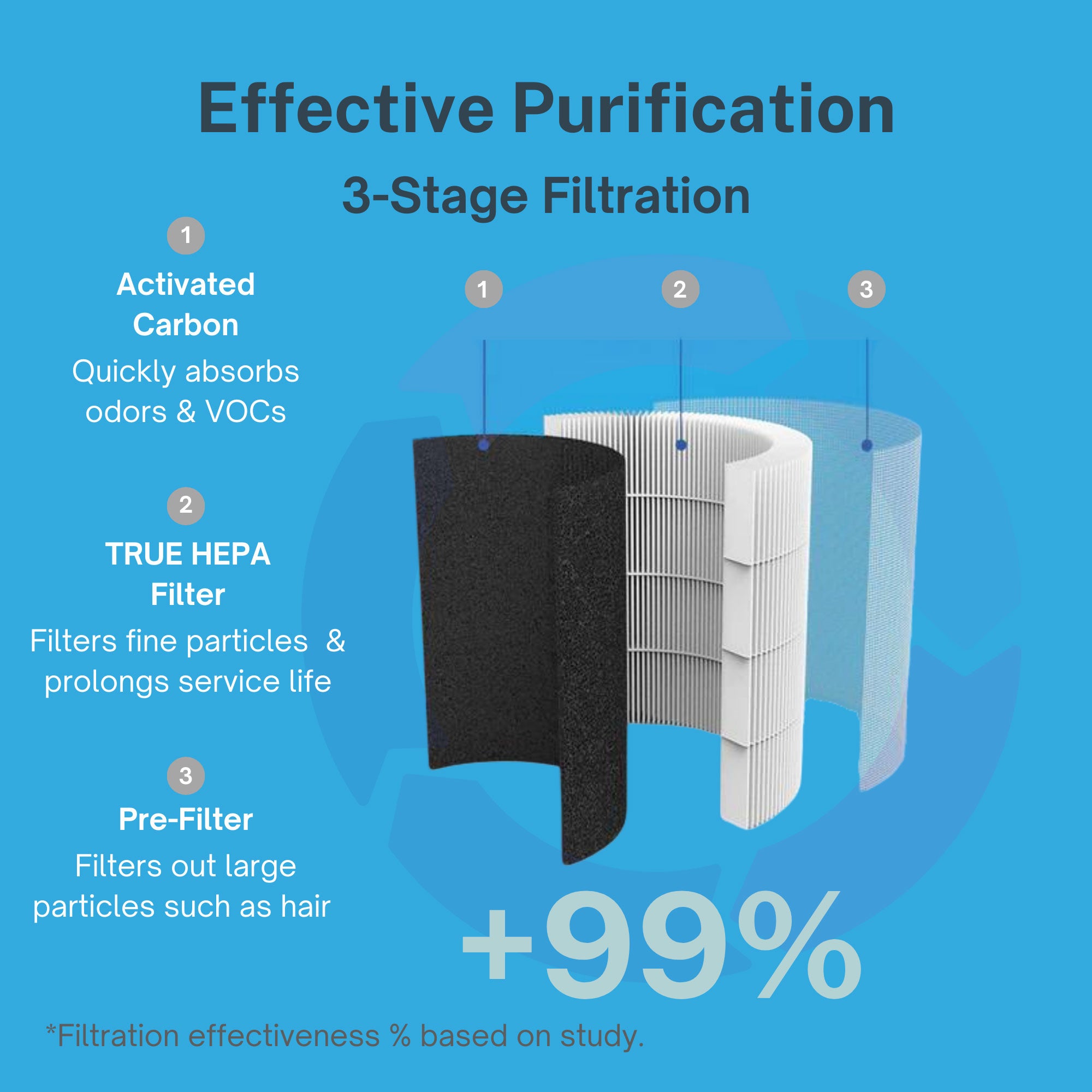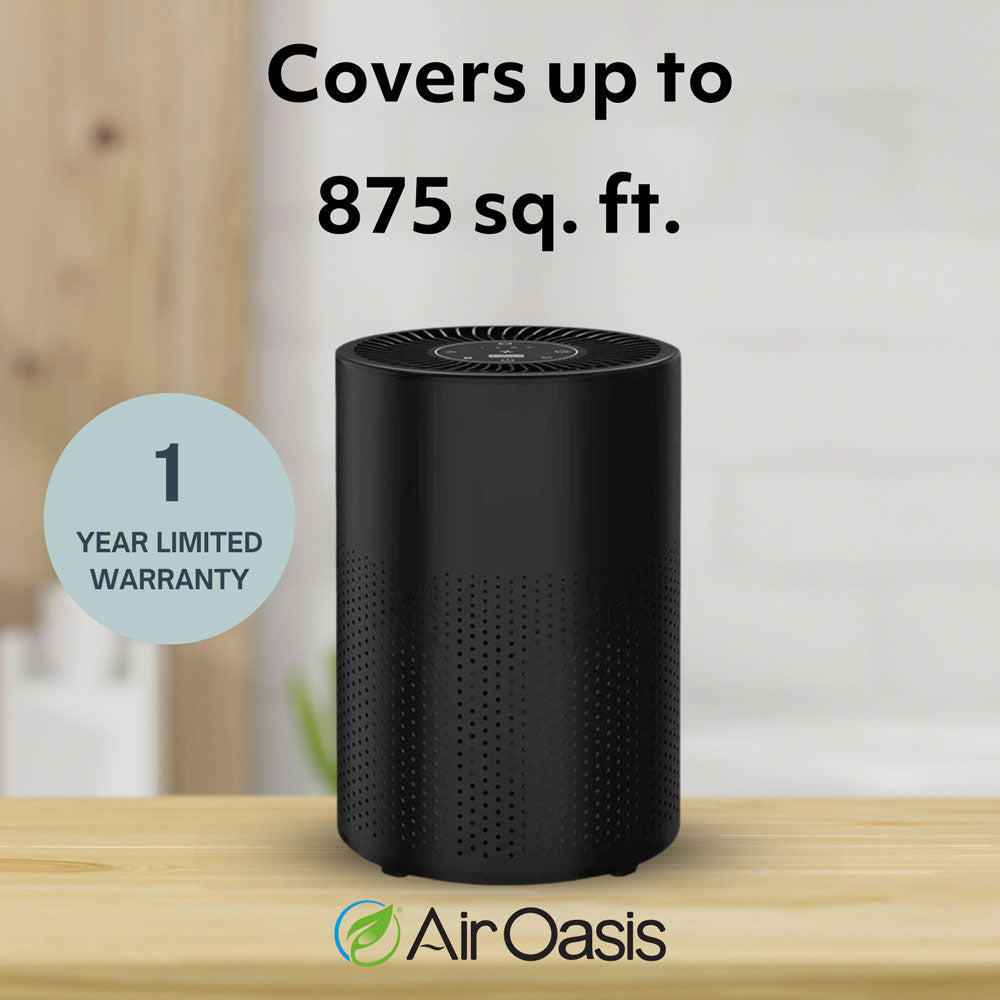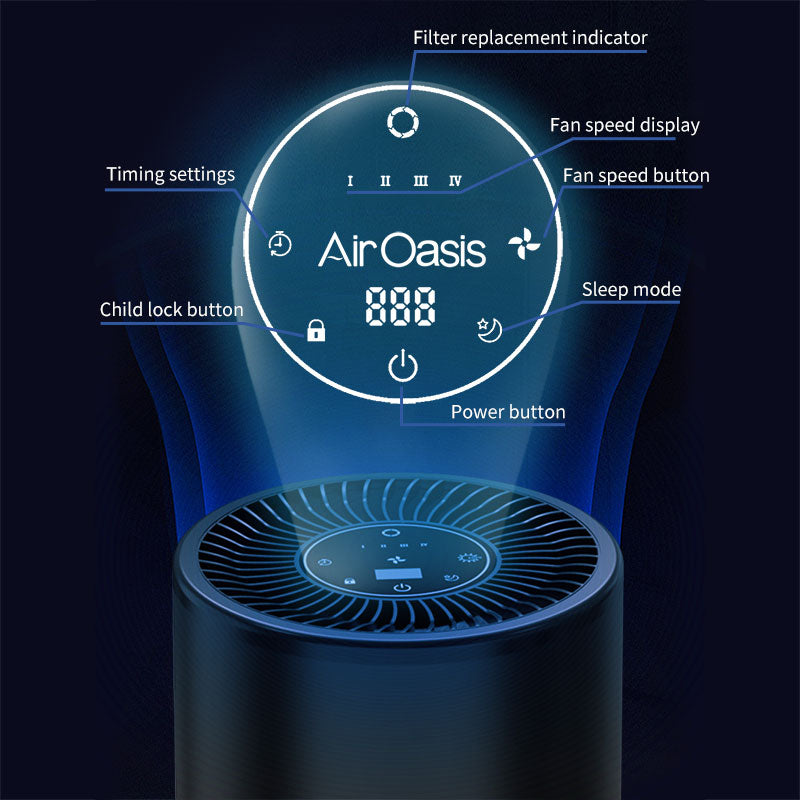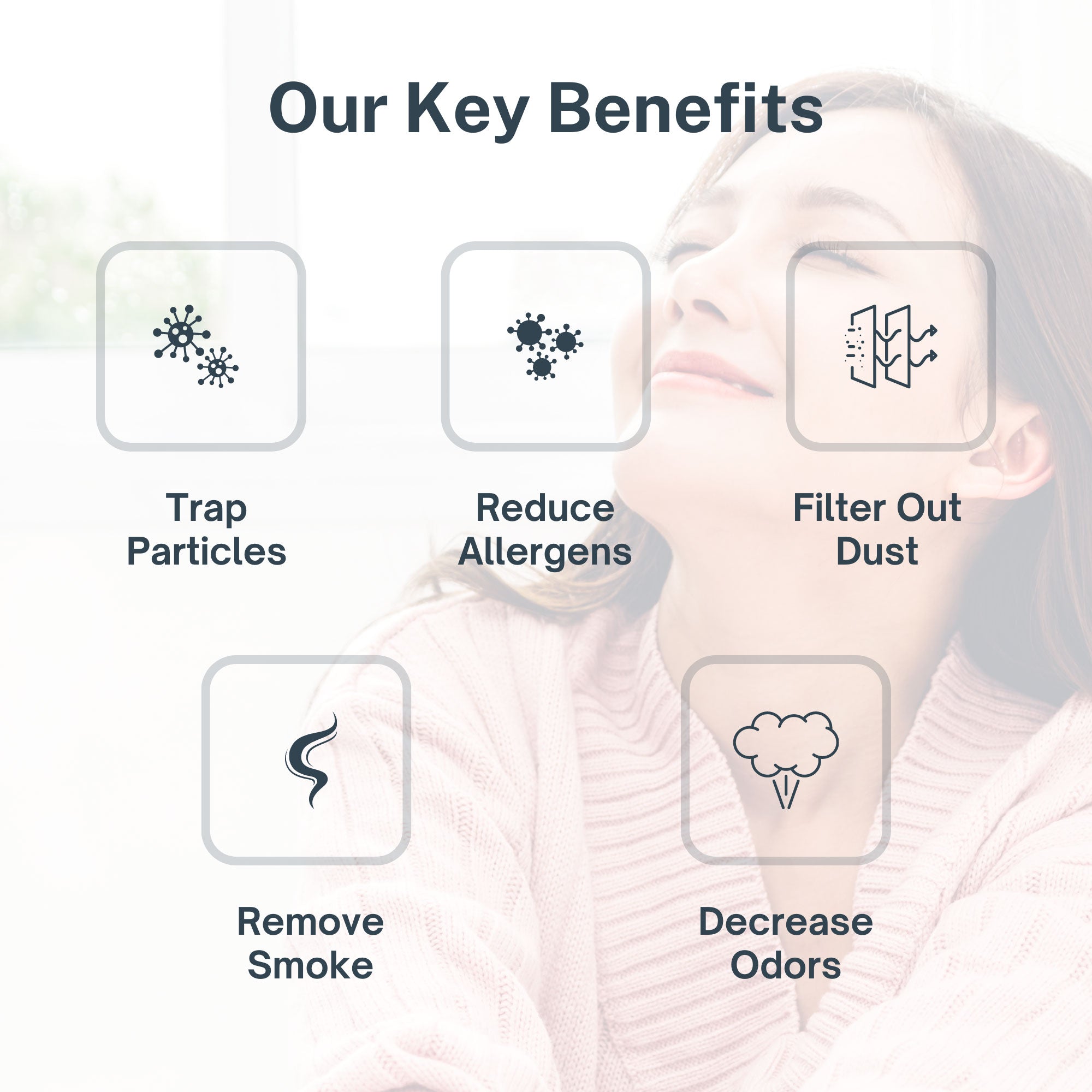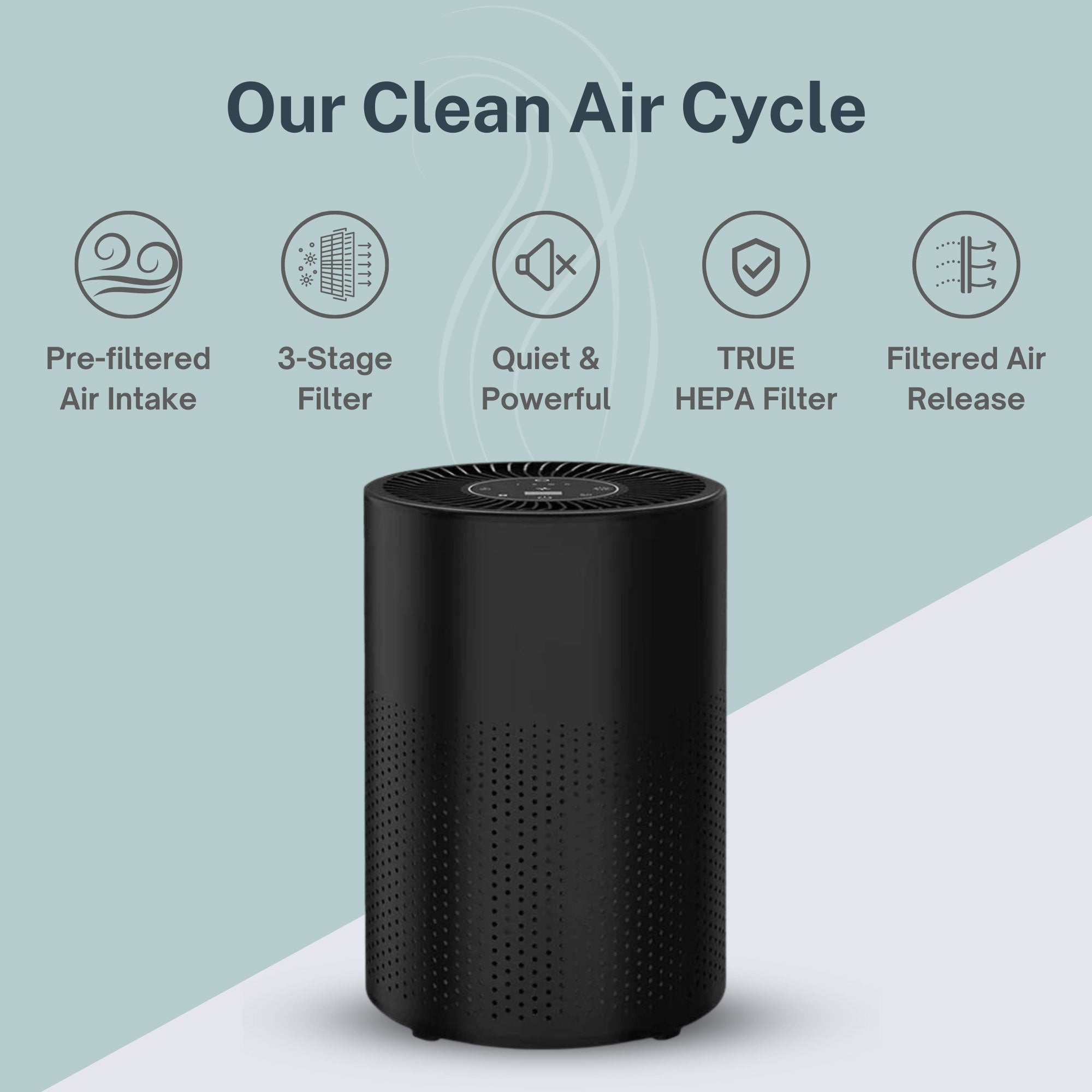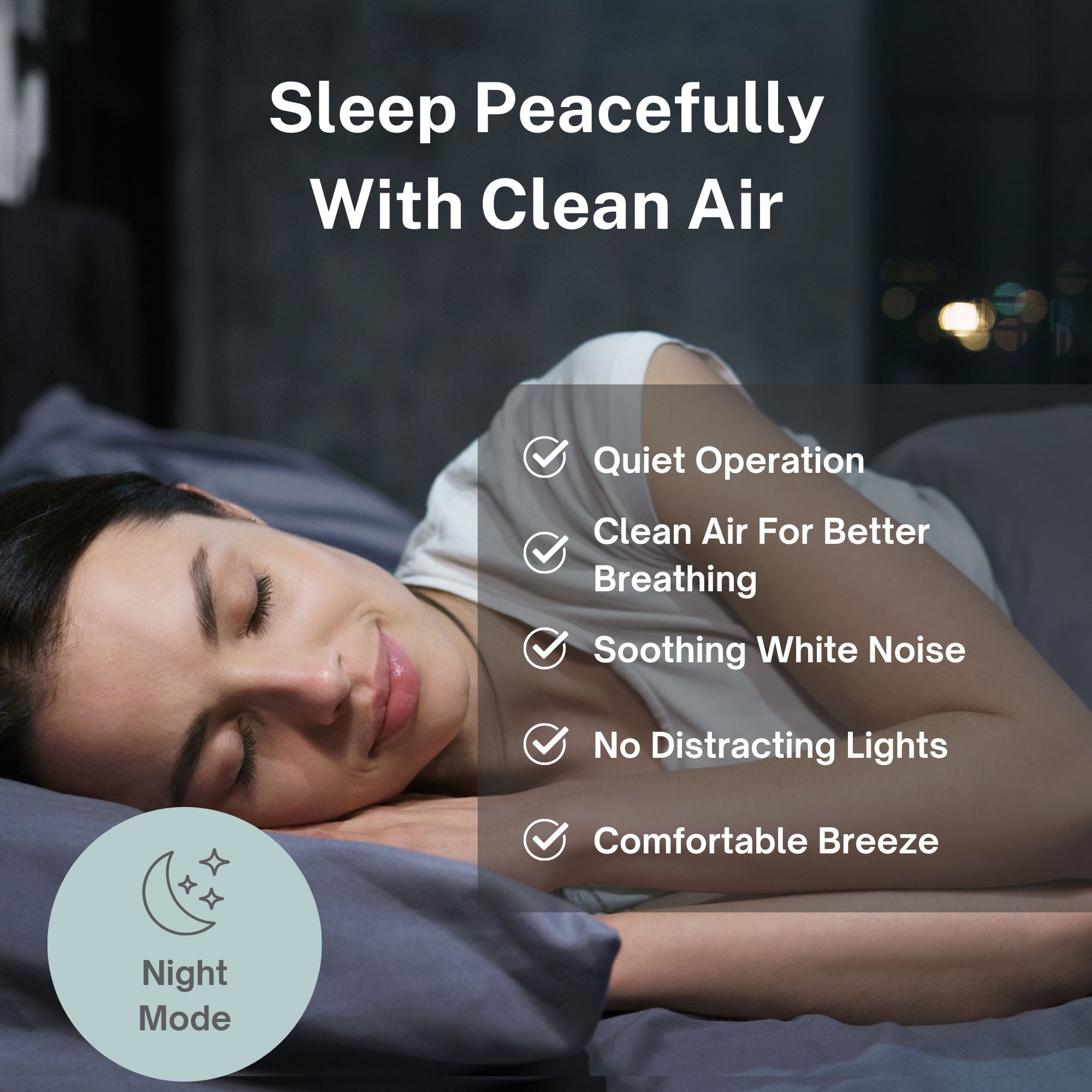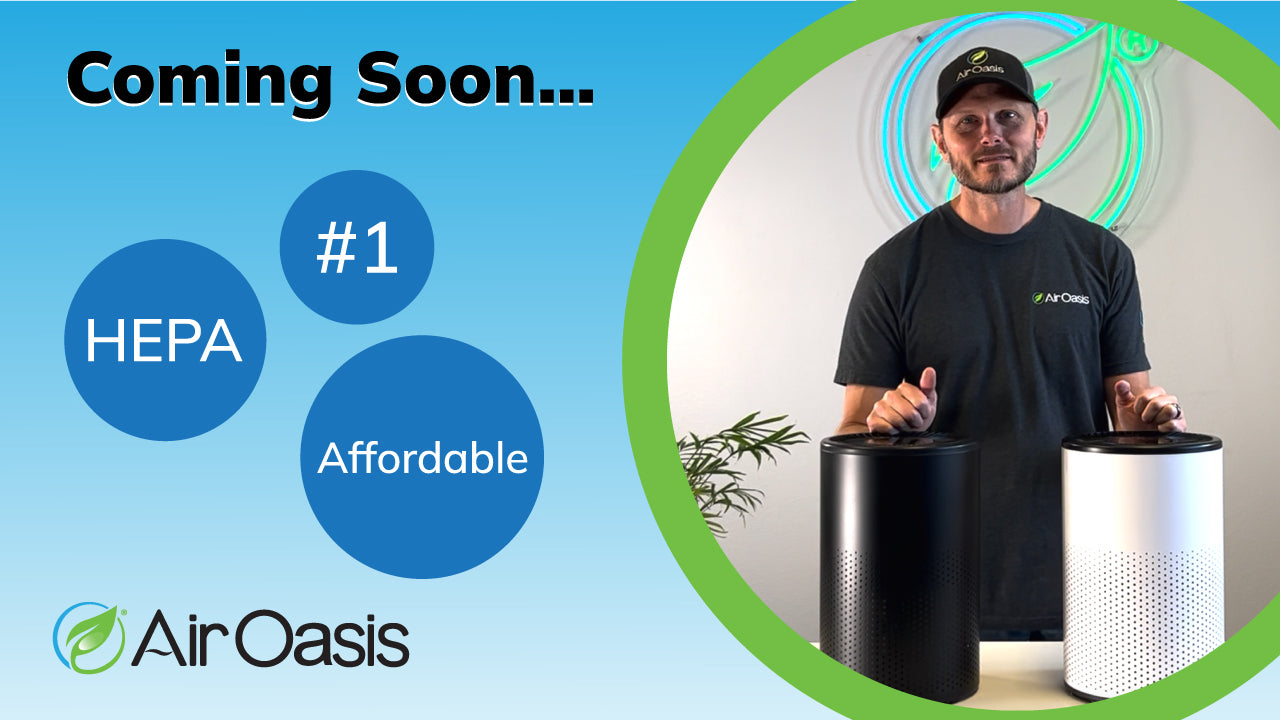Planning to see family over the holidays? According to the Centers for Disease Control and Prevention’s (CDC’s) daily COVID-19 tracker, November 23, 2021 — two days before Thanksgiving — marked a seven-day average of 94,266 daily reported COVID-19 cases. That’s up from an average of 29,611 daily reported cases exactly one month prior, a significant increase leading into the holidays. Luckily, researchers say that HEPA filters may offer benefits related to COVID-19 prevention.
“Air purifiers with HEPA filters can be used as very effective means to decontaminate the air above and beyond what many HVAC systems may offer," says Dr. Ahmad Sedaghat in a press release issued by the University of Cincinnati (UC). Dr. Sedaghat is a researcher at the UC College of Medicine. He recently published a review that suggests HEPA filters can effectively reduce airborne COVID-19 particles. Keep reading to learn how air purifiers with HEPA filters can help keep your loved ones safe this season.
At Air Oasis, we know that clean air is essential for healthy living. Whether you’re looking for an air purifier for allergies, mold and pet dander or an air purifier for COVID-19, we’ve got you covered. Visit us online for more info, or give us a call at 18063737788.
HEPA Purifiers Reduce Airborne Viruses
Airborne viruses are spread through tiny droplets or particles that contain the virus. When an infected person breathes, sneezes or coughs, they emit these tiny particles (also called aerosols) into the air, where they hang suspended. In the case of COVID-19, larger droplets can fall from the air rapidly, between seconds and minutes. However, fine aerosol particles can linger in the air for hours and spread easily throughout an indoor space.
“If people are walking around coughing or sneezing because it is allergy season and by chance they happen to be one of these asymptomatic carriers of COVID-19, there is a danger of transmission in individuals not vaccinated,” explains Dr. Sedaghat in the UC press release. Asymptomatic carriers continue to be a major source of COVID-19 infection, accounting for more than one-third of COVID cases. Completely unaware of their infection, asymptomatic carriers can easily spread the virus to the people around them.
HEPA Filters Trap Aerosols
Although many air purifiers can remove large particles from the air, not all of them can remove fine particles and aerosols. Air purifiers with HEPA filters can, which is why they may help in reducing COVID-19 transmission. In a scientific review of HEPA filters’ ability to capture aerosolized COVID-19 particles, Dr. Sedaghat found that HEPA filters were highly efficient in capturing tiny aerosolized COVID-19 particles from indoor air, a promising finding for both hospitals and homes.
Study authors say that this finding isn’t especially surprising, considering the fact that HEPA filters must adhere to stringent efficiency standards. According to the Environmental Protection Agency (EPA), true HEPA filters should theoretically be able to filter 99.97% of airborne particles of at least 0.1 microns in diameter. HEPA air purifiers that utilize additional purification technologies, such as the iAdaptAir® HEPA Purifier, can address even smaller airborne particles.
HEPA Filters for Hospitals
For healthcare professionals who work with COVID-19 patients on a daily basis, containment of airborne viruses is paramount to safety. Despite the use of personal protective equipment and ventilation, many healthcare workers have reported contracting COVID-19 from infected patients. In the first study of its kind, recent research published in Nature confirms that portable HEPA filters can remove airborne COVID-19 in a real-world setting (rather than a controlled environment).
To examine the filters’ efficacy in real-world conditions, study researchers installed portable HEPA filters in two fully occupied COVID-19 hospital wards: a general ward and an intensive care unit (ICU). Researchers collected air samples from both wards for a week when the filters were turned on and two weeks when they were turned off.
Researchers found COVID-19 particles in the samples taken from the general ward taken during the two weeks when the filters were off. In the general ward samples taken when the filter was on, they found none. In the ICU air samples, researchers didn’t find COVID-19 from either period, suggesting slower viral replication in later stages of the disease.
HEPA Filters for Homes
Although recent research focuses on the efficacy of running HEPA filters in medical environments to reduce airborne COVID-19, hospitals are not the only place they’re needed. As COVID-19 restrictions ease across the country, there is a critical need for ways to reduce transmission in any indoor setting where large numbers of people congregate.
“If you want to host larger gatherings you should consider putting the air purifiers into your living room to help decontaminate anything that is released into the air,” explains Dr. Sedaghat in the UC press release. He continues, “HEPA based air purifiers work the best.”
Dr. Sedaghat goes on to say that HEPA purifiers decontaminate indoor spaces much faster and much more efficiently than non-HEPA purifiers, making them an ideal choice for the home. He also notes that HEPA purifiers are not terribly expensive and provide an accessible means by which to control the spread among unvaccinated populations.
Best Air Purifiers for COVID-19
HEPA is the gold standard of air filters. However, filtration isn’t the only air purification technology. The most effective air purifiers on the market will utilize multiple purification technologies to trap, reduce, decontaminate and destroy contaminants of all kinds. If you’re looking for the best air purifier for COVID-19, consider the iAdaptAir® HEPA Purifier.
The iAdaptAir® is a powerful but quiet and smart air purifier harnessing its strength from the top five purification technologies:
- HEPA filter
- Carbon filter
- Ultraviolet light (UV)
- Silver ion
- Bi-Polar® ionization, also called cold plasma
In addition to trapping airborne contaminants in its HEPA and carbon filters, the iAdaptAir® can actually deactivate airborne pathogens like mold, bacteria and viruses by using shortwave UV light. That means if a microscopic airborne particle slips through the filters, the iAdaptAir® can still dispense of it.
Additionally, the iAdaptAir® uses two ionization technologies, silver ion and Bi-Polar®, to seek out airborne contaminants, cause them to drop from the air and render them incapable of replication. Ionizers not only clean the air, but can also decontaminate surfaces as well. The combination of these five purification technologies makes iAdaptAir® a superior choice for both homes and commercial spaces.
Air Oasis Air Purifiers
Although COVID-19 is many people’s most immediate concern when discussing indoor air quality, the truth of the matter is that it’s not the only dangerous airborne contaminant. Volatile organic compounds (VOCS), mold, allergens and smoke also pose health risks to a home’s occupants. To achieve the best indoor air quality possible, you need to choose an air purifier capable of tackling every contaminant and pollutant.
At Air Oasis, we pride ourselves on offering the best air purifiers on the market. Each one of our air purifiers undergoes rigorous testing at third-party labs, the results of which can be found on our website. If you’re ready to protect your indoor air quality with trusted, proven technology, look no further than Air Oasis air purifiers. Questions? Visit us online or give us a call at 18063737788.

